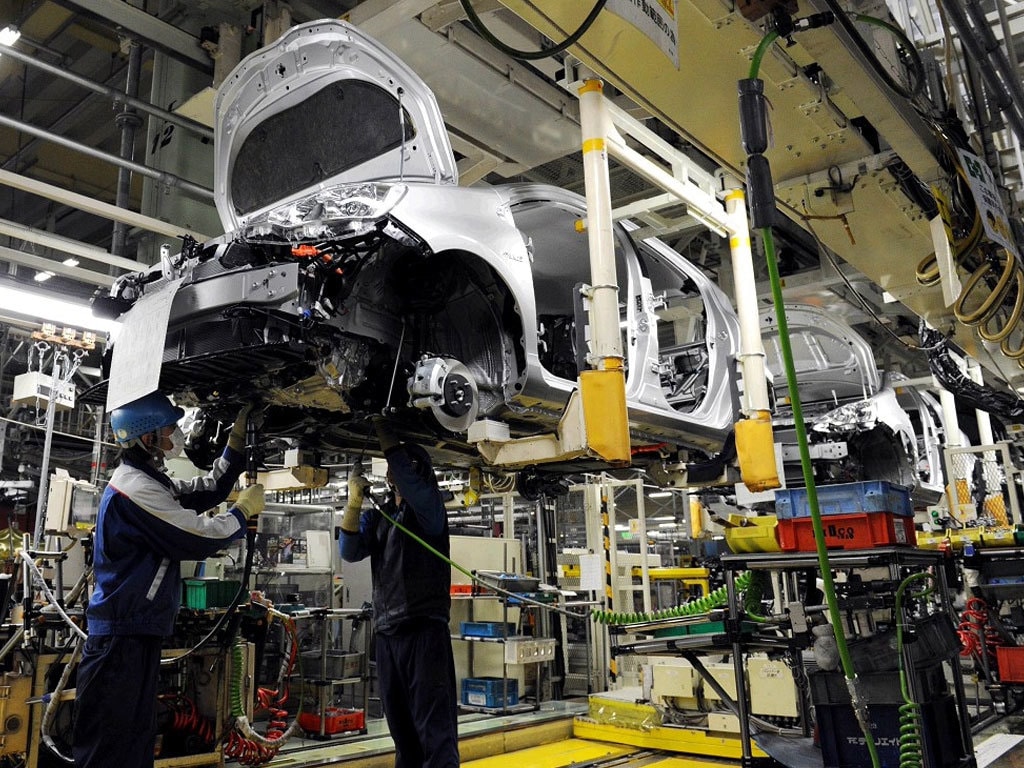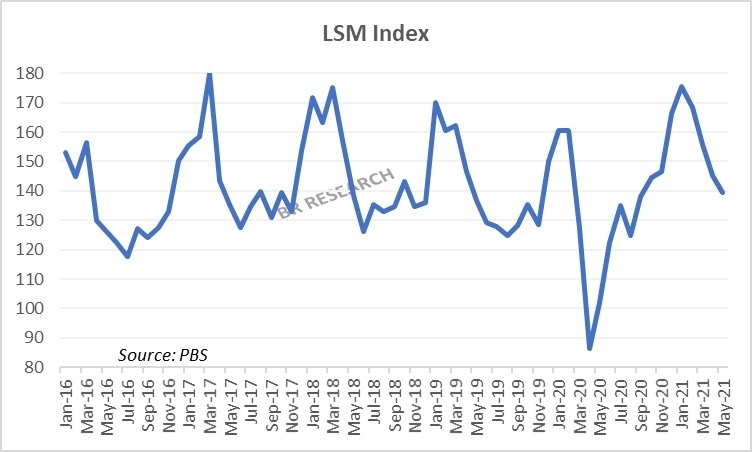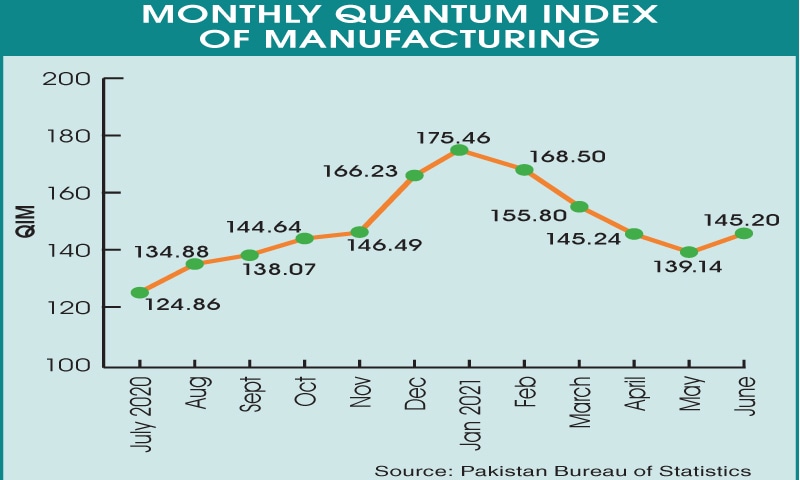Industrial output surges 22.39pc in December, 9pc in 3 quarters
- The industrial production during July-March (2020-21) was recorded at 150.53 points against the output of 138.11 points during July-March (2019-20).
APP
08 May 2021
ISLAMABAD: The Large Scale Manufacturing Industries (LSMI) production grew by 22.39 percent on year-on-year basis during the month of March 2021 as compared to the corresponding month of last year, Pakistan Bureau of Statistics (PBS) reported.
LSMI Quantum Index Number (QIM) was recorded at 155.60 points during March 2021 against 127.14 points during March 2020, showing positive growth of 22.39 percent, according to the latest PBS data.
During the first three quarters of the current fiscal year, the overall production increased by 8.99 percent compared to the corresponding period of last fiscal year.
The industrial production during July-March (2020-21) was recorded at 150.53 points against the output of 138.11 points during July-March (2019-20).
The highest increase of 6.85 percent was witnessed in the indices monitored by the Ministry of Industries, followed by 1.49 percent increase in indices monitored by the Provincial Board of Statistics and 0.66 percent increase in the products monitored by the Oil Companies Advisory Committee (OCAC).
The major sectors that showed positive growth during March 2021 included textile (40.41%), coke and petroleum products (76.85%), pharmaceuticals (16.05%), chemicals (26.44%), mon-metallic mineral products (56.39), automobiles (123.27%), iron and steel products (31.46%) and fertilizers (6.01%).
On the other hand, the LSM industries that witnessed negative growth in March 2021 included electronics (26.68%), leather products (16.70%), paper and board (2.61%), engineering products (22.70%) rubber products (30.36%), and wood products (186.53.
It is pertinent to mention here that the provisional QIM is being computed on the basis of the latest production data received from sources, including Oil Companies Advisory Committee (OCAC), Ministry of Industries and Production (MoIP) and Provincial Bureaus of Statistics (PBoS).
Industrial output surges 22.39% in December, 9% in 3 quarters
The Large Scale Manufacturing Industries (LSMI) production grew by 22.39 percent on year-on-year basis during the month of March 2021 as compared to the corresponding month of last year, Pakistan Bureau of Statistics (PBS) reported.
LSMI Quantum Index Number (QIM) was recorded at 155.60 points during March 2021 against 127.14 points during March 2020, showing positive growth of 22.39 percent, according to the latest PBS data.
During the first three quarters of the current fiscal year, the overall production increased by 8.99 percent compared to the corresponding period of last fiscal year.
The industrial production during July-March (2020-21) was recorded at 150.53 points against the output of 138.11 points during July-March (2019-20).
The highest increase of 6.85 percent was witnessed in the indices monitored by the Ministry of Industries, followed by 1.49 percent increase in indices monitored by the Provincial Board of Statistics and 0.66 percent increase in the products monitored by the Oil Companies Advisory Committee (OCAC).
The major sectors that showed positive growth during March 2021 included textile (40.41%), coke and petroleum products (76.85%), pharmaceuticals (16.05%), chemicals (26.44%), mon-metallic mineral products (56.39), automobiles (123.27%), iron and steel products (31.46%) and fertilizers (6.01%).
On the other hand, the LSM industries that witnessed negative growth in March 2021 included electronics (26.68%), leather products (16.70%), paper and board (2.61%), engineering products (22.70%) rubber products (30.36%), and wood products (186.53.
It is pertinent to mention here that the provisional QIM is being computed on the basis of the latest production data received from sources, including Oil Companies Advisory Committee (OCAC), Ministry of Industries and Production (MoIP) and Provincial Bureaus of Statistics (PBoS).










